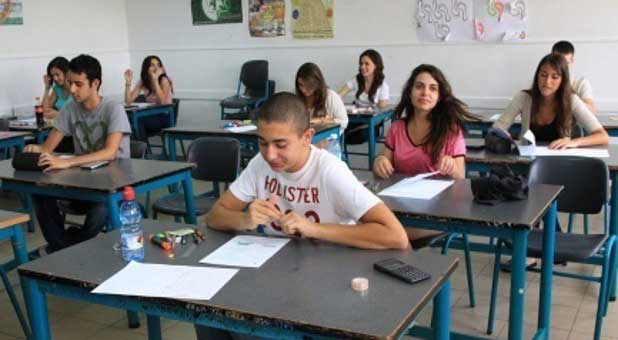Israeli students ranked seventh worldwide and top among Western nations on the Third International Mathematics and Science Study test in the 2011 school year, according to results released on Tuesday.
On the TIMSS science test, Israeli students came in 13th place worldwide while on the Progress in International Reading Literacy Study test they came in 18th. On all of the tests, Israel finished higher than it ever had before.
The TIMSS test was administered to eighth-grade Israelis while the PIRLS test was administered to fourth-grade Israeli students.
Asian countries led all others in math, science and reading, the test results show.
The TIMSS and PIRLS tests are given every four years. In 2007, Israeli students came in 24th in math, 25th in science and 31st in reading.
The results however did not include test scores from all sectors of the education system. According to the tests website, Israel has the highest rate of exclusion of student testing in the world, standing at over 20 percent of its fourth-grade student population. Israel, as a matter of practicality, needed to define its tested populations according to the structure of their school systems, the TIMSS website said.
“I want to thank the teachers, who did wonderful work,” Education Minister Gideon Sa’ar said on Tuesday.
Prime Minister Benjamin Netanyahu expressed pride in the “wonderful achievement” of Israel’s students and teachers.
President Shimon Peres said that Israel must continue investing in education, which he called the “most important future asset of the State of Israel.”
The average math score worldwide was 467, but in Israel it was 516.
In terms of socio-economic groups, Israeli students from upper-class homes averaged a 565 math score, with middle-class students coming in at 521 and lower-class students at 493.
Israel’s Arabic-speaking students improved on the tests compared to four years ago, but large gaps still existed between their results and those of Hebrew-speaking students.
While the test results were being widely praised on Tuesday, there were some discordant voices.
For example, Itai Banovich, the principal of the Israel Arts and Science Academy in Jerusalem, said that there was an “obsessive preoccupation” with comparing Israeli students to their counterparts from around the globe, which reduced discussions about education to “numbers.”
Yossi Yonah, a professor of educational philosophy and a Labor party Knesset candidate, said that matriculation exam data published last month showed a high correlation between a student’s place of residence and academic achievement. He accused the current government of a “systematic policy” of cutting the education budget, placing a growing burden on local authorities and parents and turning some teachers into contract workers.
For the original article, visit israelhayom.com.












